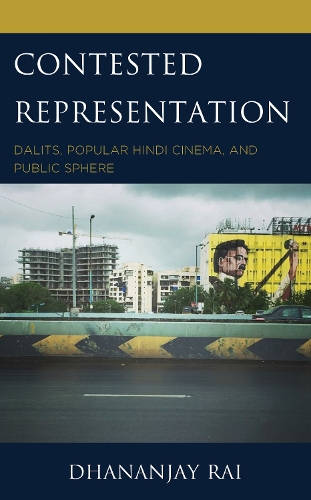
Contested Representation: Dalits, Popular Hindi Cinema, and Public Sphere
(Hardback)
Publishing Details
Contested Representation: Dalits, Popular Hindi Cinema, and Public Sphere
By (Author) Dhananjay Rai
Bloomsbury Publishing PLC
Lexington Books/Fortress Academic
19th July 2022
United States
Classifications
Professional and Scholarly
Non Fiction
Society and culture: general
Social discrimination and social justice
Ethnic groups and multicultural studies
Politics and government
791.430954
Physical Properties
Hardback
268
Width 160mm, Height 228mm, Spine 26mm
567g
Description
Popular Hindi cinema has become a significant signpost of contemporaneity due to its construction of social language. Generally, Hindi cinema has been understood through internal (auteur or genre or cinma verit) and external aspects (consumption spheres and moviegoers complex response in the form of catharsis or everydayness mimesis). However, cinema also needs a new way of discerning with respect to Dalit Representation. The study needs to look at the construction and meaning of the social language of Hindi cinema. Construction refers to exploring factors beyond the film industry responsible for shaping the social language. Meaning entails the exhibition of social language in the form of messages. Herein, relational exploration becomes crucial. The relationship between factors of social language of Hindi cinema and Dalits must be unraveled for understanding the meaning of social language for Dalits. Contested representation encompasses the nature of absence and presence of Dalits in Hindi cinema.
Reviews
Well-researched, theoretically grounded and politically committed, this is a pioneering study of Dalits and Hindi cinema, examined through the perspectives of social language and representation. It needs to be read, and I hope it leads to more studies of Dalits in Indian cinema.
-- Tabish Khair, Aarhus UniversityContested Representation is a brilliant exposition of the social language of Hindi cinema focusing on the absence and presence of Dalits in cinematic constructions. Rai argues persuasively that cinematic representations replicate the social and material power imbricated in caste hierarchies, yet the narratives are heterogenous, and the representational field is inflected by powerful Dalit resistance against domination.
-- Anupama Roy, Jawaharlal Nehru UniversityAuthor Bio
Dhananjay Rai teaches political theory, political thought, and education at the Central University of Gujarat, Gandhinagar, India.
